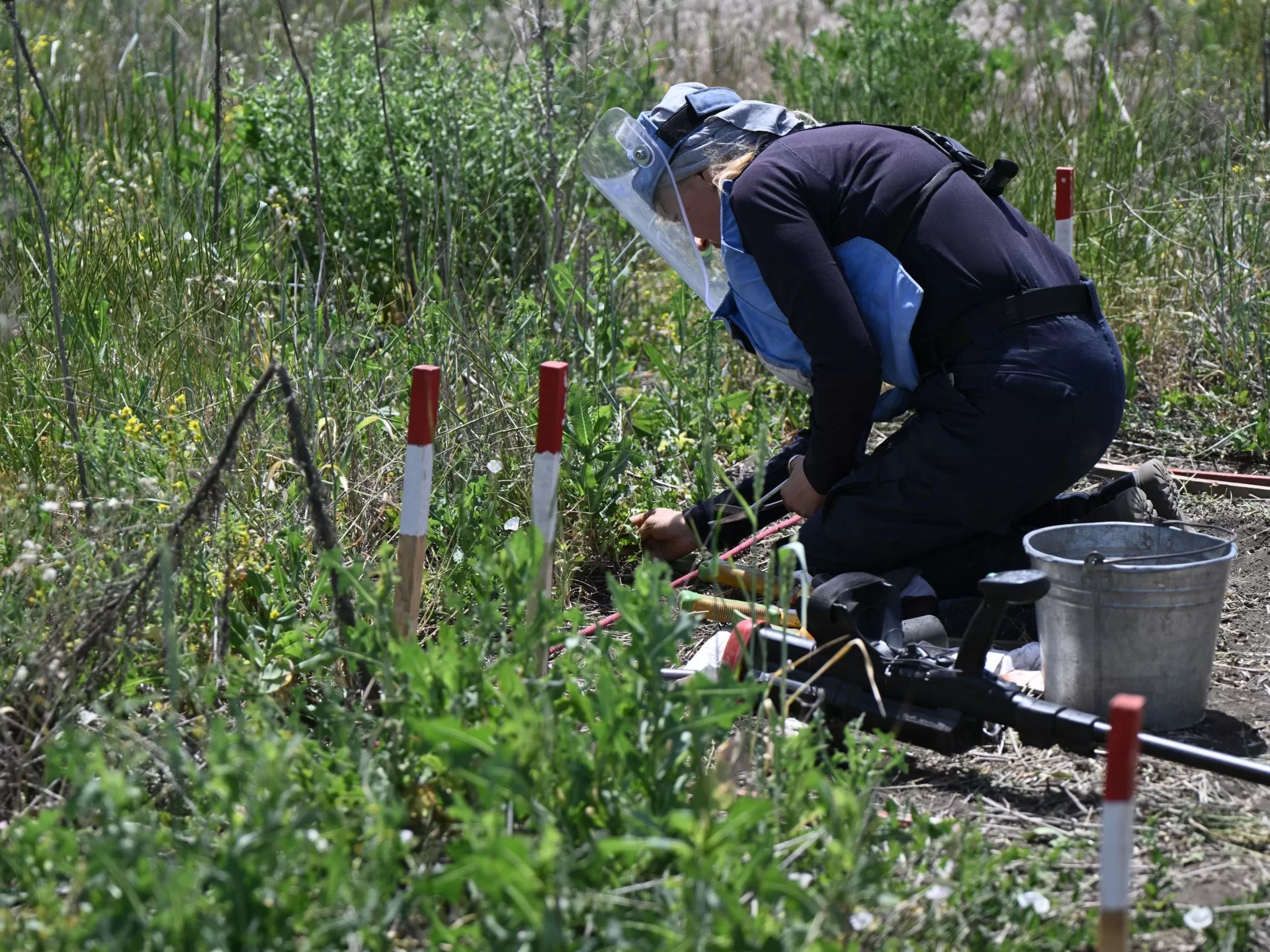Just a few years ago this scene would have been impossible – until 2018 women were banned from becoming deminers, a profession long considered too dangerous for them.
“I did not think that my path would lead here,” said the 51-year-old former maths teacher whose face was covered with a thick protective mask.
But the Russian invasion in February 2022 changed that.
After first helping to build fortifications to repel Moscow’s soldiers and then losing her father in a bombardment, Shpak said she “really wanted to be useful”.
More women like her are joining mine-clearance teams, where they now account for 30 percent of personnel, according to official data.
A similar trend has unfolded in other professions once dominated by men who have been drained of labour by mobilisation and emigration.
“The family was initially against it, of course,” said Shpak, who has been working for the Halo Trust mine-clearing organisation in Snigurivka, in the southern Mykolaiv region, for the past year.
Her teenage daughter, in particular, was “nervous”.
But Shpak told her that the work is safe, as she only locates mines while other teams actually detonate them.
“Now my daughter says that when she grows up, she will also try something similar,” Shpak said.
While she does not see herself as a role model, she said she would “like to see more women doing this kind of work”.
Valeria Ponomareva, a 23-year-old former hairdresser who leads a team of deminers, says women can have advantages in this line of work.
“Girls are more attentive, careful,” she told the news service AFP.
She said her mother was “shocked” but she has no regrets about her “dramatic” career change.
“For the prosperity of Ukraine our work is necessary,” Ponomareva said.
Ukraine’s ranks of female deminers boast a former ballerina, a chemist who used to produce sparkling wine and a dentist, the Halo Trust says.
Ponomareva comes from the eastern Donetsk region, one of the most heavily mined areas in the country where war has raged since 2014.
Russian forces laid mines around Snigurivka when it was under their control for much of 2022.
Elsewhere, Ukrainian troops have also left a trail of their own explosives, which they hope will thwart Russian advances.
According to the Interior Ministry, almost a quarter of the country could be “contaminated with mines and explosive devices”.
More than 270 people have been killed in mine blasts since the Russia-Ukraine war started in February 2022, according to Kyiv.
